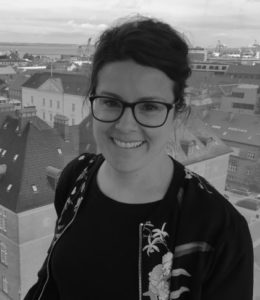
Ingela Visuri holds a master’s degree in the Study of Religions and currently serves as a doctoral candidate at Södertörn University and Gävle University in Sweden. In her research, Ingela explores religiosity in young adults with high functioning autism, with special attention paid to relational and embodied aspects. This interdisciplinary project primarily draws on theories from the cognitive science of religion and autism studies, and is conducted through both ethnographic and quantifiable methods. The main aim is to generate new hypotheses on religion and autistic cognition by highlighting and analysing first-person experiences.
Ingela is also an associate PhD-fellow of the Religion, Cognition and Culture research group at Aarhus University in Denmark, and is the co-founder of the Nordic Network for the Cognitive Science of Religion together with Uffe Schjødt. She is also on the editorial board of a forthcoming popular scientific magazine on religion, on the initiative of Andreas Johansson.
For more information, please visit https://ingelavisuri.academia.edu.
spectrum represent a unique population of study in the cognitive and psychological sciences of religion. Because religious cognition stems from normal social-cognitive capacities, which are altered for individuals on the spectrum, researchers also expect variation in how they think about supernatural agents.
This work is licensed under a Creative Commons Attribution- NonCommercial- NoDerivs 3.0 Unported License.
The views expressed in podcasts, features and responses are the views of the individual contributors, and do not necessarily reflect the views of The Religious Studies Project or our sponsors. The Religious Studies Project is produced by the Religious Studies Project Association (SCIO), a Scottish Charitable Incorporated Organisation (charity number SC047750).